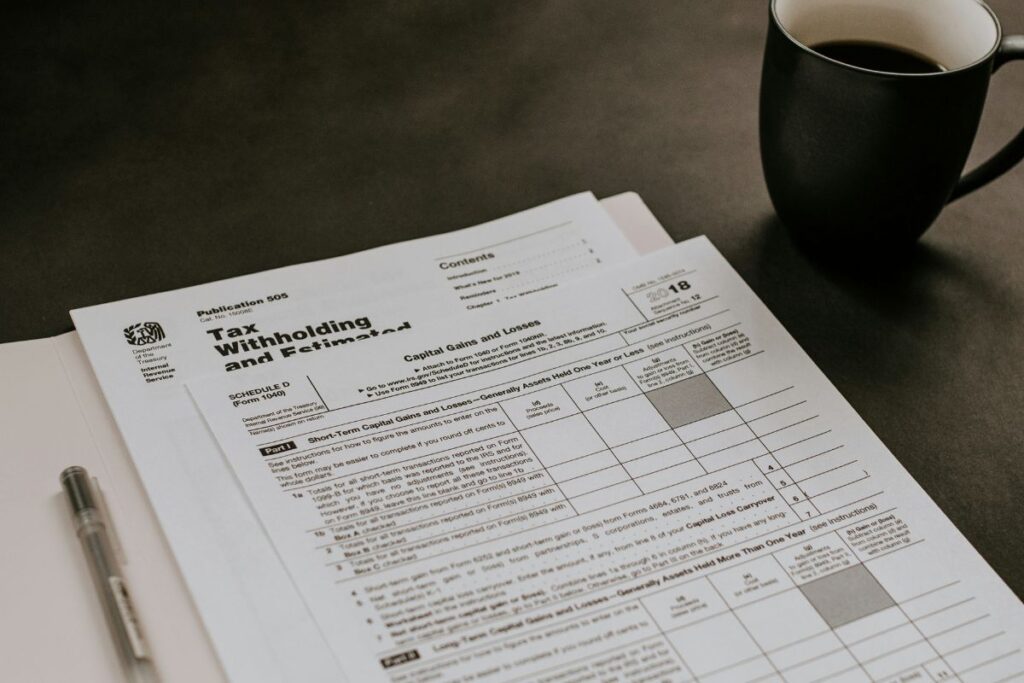Navigating the Nebraska income tax rate can be overwhelming, especially for newcomers.
Still, understanding income tax rates and related taxes is essential for all adults. Doing so will lead you to a smooth financial journey.
Let’s break down key concepts to help you get started.
Nebraska Income Tax Rates
Nebraska has a progressive state income tax system, meaning tax rates increase as taxable income rises. According to the Tax Foundation, the individual income tax rates in 2024 range from 2.46% to 6.64%.
Note that the rate you pay depends on your income level. So you should always check the income tax brackets to see where you fall.

Taxable Income and Deductions
Your taxable income is the amount used to calculate your income tax. However, for residents and non-residents, individual income tax is imposed at the end of each year.
Meanwhile, Nebraska offers tax credits and deductions that lower your tax liability.
Common credits include the Child Care Tax Credit and the Personal Exemption Credit. Furthermore, these deductions can reduce your taxable income.
Below are two terms that are crucial for effective tax planning:
- Standard Deduction: Your income tax return is a fixed amount that reduces your taxable rate. The amount depends on your filing status on the Nebraska Standard Deduction Chart.
- Itemized Deductions: An itemized deduction is a specific expense you can deduct. However, some examples of these tax deductions are mortgage interest or medical expenses.
Other Nebraska Income Taxe rates to be Aware Of
Nebraska imposes various taxes beyond personal income tax. Here’s a quick overview.
- Property Taxes: In Nebraska, estate taxes get levied on both real estate and personal property. Property taxes include homes, land, vehicles, and other possessions.
- Sales Taxes: Sales taxes are generally applied to goods and, in some cases, services. However, the rates can vary, so it’s essential to know the combined rate in your specific location.
- Corporate Income Tax: Nebraska imposes corporate income taxes on corporations operating in the state and the rate is around 7.50%.
5 Tips for Navigating the Nebraska Income Tax Rate
Here are some tips beginner taxpayers in Nebraska should know.

1. Choose the Right Filing Status
Your filing status can increase or decrease your tax rates and deductions.
Single filers will have a different rate than married couples with dependents. So you should pick the status that best suits your situation.
2. Federal Considerations in Nebraska Income Tax Rate
Remember that federal taxes play a role in your tax rates.
Be aware of how state and federal taxes interact, especially if you’re a business owner or have additional income sources.
3. Seek Professional Assistance
For those in complex situations, consulting a tax professional can provide valuable insights. In addition, these people can ensure accurate filing and identify potential deductions.
4. Check Tax Tables
Reviewing tax tables helps you grasp how much you owe based on your income.
Different tables may apply to various tax types. Not to worry, you can find everything on the Nebraska state website.
5. Stay Updated on Tax Reform
Every year, the state makes changes to the income tax rate. Your job is to stay informed about changes in tax laws and rates.
Remember that taxation is subject to updates. Understanding reforms can impact your financial planning.
Conclusion about Nebraska Income Tax Rate
For some, learning about the Nebraska income tax rate is a tedious part of financial life. However, it’s best to stay positive. With knowledge and planning, you can navigate them effectively.
Understanding Nebraska’s tax landscape is a vital step toward financial success. This is true whether you’re an individual or a business owner!
Would like to know more about other taxes? We recommend you to read New York state income tax rate and Minnesota income tax rate as well.










